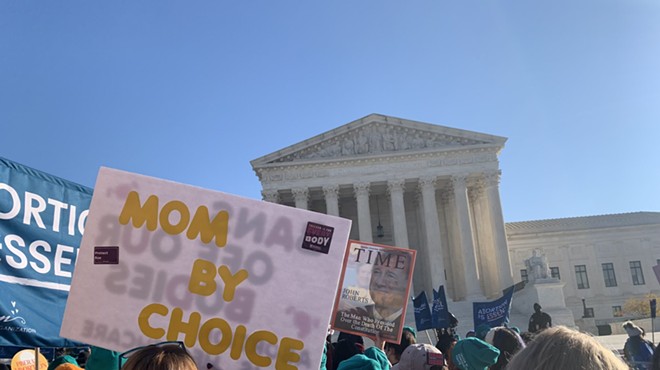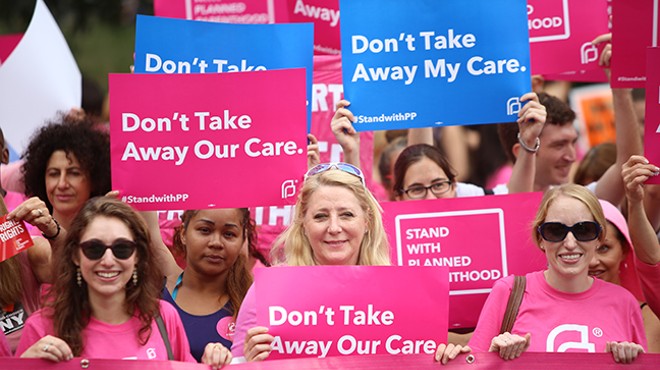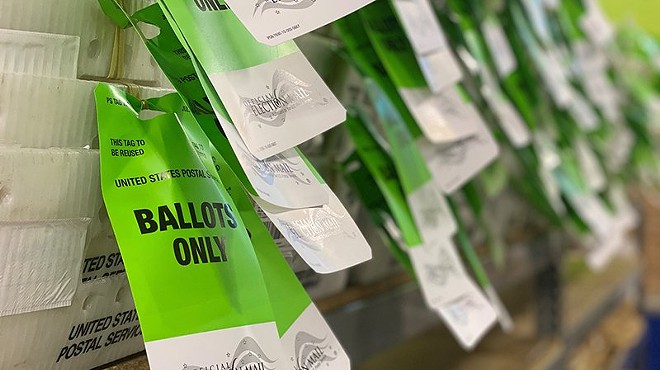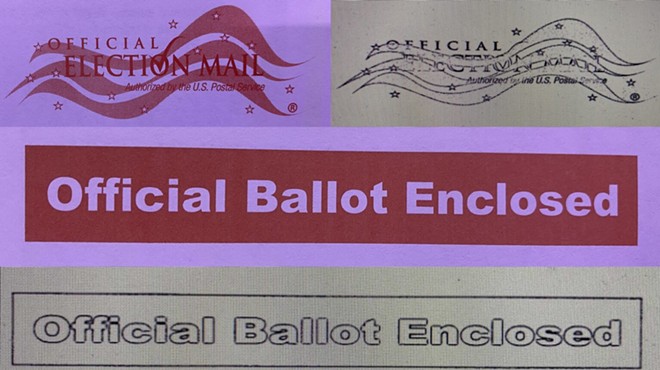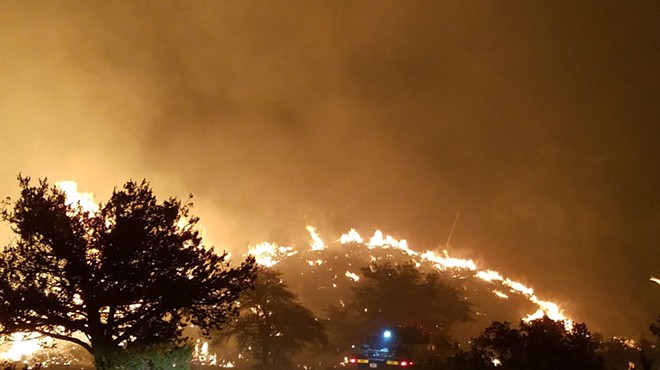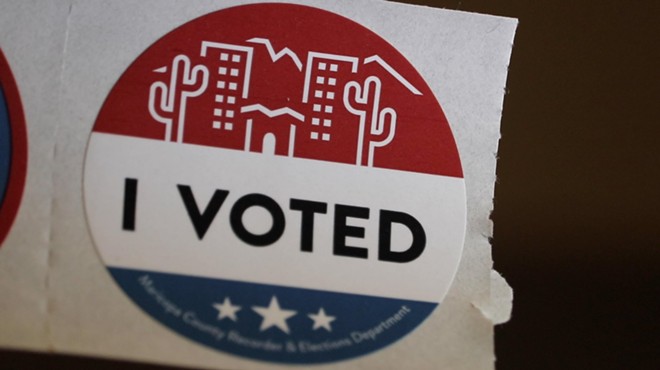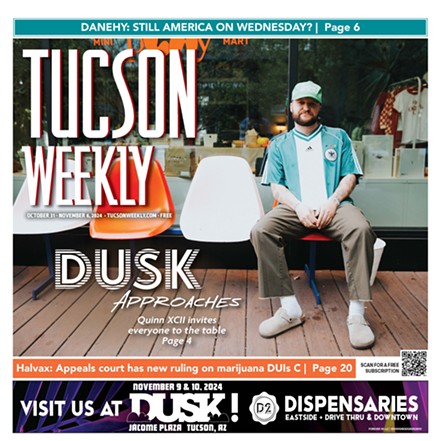Wednesday, March 24, 2021
Board of Supervisors Calls on Ducey To Reconsider His Decision To Block FEMA Vax Site in Pima County

The Pima County Board of Supervisors voted unanimously to approve a resolution requesting Gov. Doug Ducey reconsider denying permission to set up a federal vaccination POD in Pima County.
The board also voted to seek help from the federal government if declined a second time at an emergency meeting on Wednesday.
The county would request “the Biden Administration, in keeping with their National Strategy Goals for COVID-19 vaccination, direct the Department of Homeland Security Secretary and the Acting Federal Emergency Management Agency Administrator to establish a Type 1 Federal vaccination center to provide vaccine opportunities to disadvantaged and minority communities.”
At a press briefing Wednesday afternoon, Ducey said he would reconsider Pima County’s request to allow a federal POD vaccination site in Pima County, but only because “'Board of Supervisors feel so strongly about it, but the objective is going to remain putting shots in arms.”
The Federal Emergency Management Agency (FEMA) first approached Pima County Health Department Director, Dr. Theresa Cullen, on the possibility of establishing a COVID-19 vaccination POD in Pima County about two weeks ago, according to County Administrator Chuck Huckelberry's March 24 memo.
However, the request required approval by the state and Ducey, through Arizona Department of Health Services Director Dr. Cara Christ, declined. While Ducey said he would revisit the request, the reasons given for declining remain the same.
In a letter in response to Christ, FEMA Acting Regional Administrator Tammy L. Littrell addressed each of Christ’s concerns about the federal POD taking vaccine supply, lacking state oversight and partnership, and concerns about customer experience and delays. Littrell said the vaccine supply provided to the state POD is independent of the vaccine supply that would be allocated for the federal POD. Further FEMA is seeking an “active partnership” with the state and “concerns for hours-long waits as the norm are unfounded.”
According to Huckelberry’s March 24 memo, county officials were told the state rejected the request because the site would require state support and support is unavailable.
At the briefing Wednesday afternoon, Christ reiterated their concerns while also expressing confusion as to why the vaccines could not be supplied directly to the state instead.
“There were many concerns on why we felt that they couldn't just give us the vaccine but that they needed to just set up an entire site outside of our already state distribution,” said Christ. “There's a huge list of what the state has to provide in order to operate that. We already have a lot of that infrastructure in place where all we would need to do is add a couple of 100 appointments to each hour, and we would be able to significantly increase capacity without resources.”
She said by the time the site is ready and running the state could have already started to vaccinate individuals.
Former surgeon general and current Reentry Task Force Director Dr. Richard Carmona supported Christ and Ducey and said that while the process to provide 3,000 vaccines a day may seem simple, it is a long process.
“It’s taken a long time to get onto the supply chain and arrange with the state to get the vaccines and get the needle through the arm,” said Carmona. “Just dumping vaccine in any particular place, where you're not sure that there's an infrastructure is really a design for failure.”
Ducey stated that the federal site has 10 percent of the state capability, incorrectly stating the potential of 6,000 doses at the federal POD versus the state level of 60,000 doses.
According to the March 24 memo, the offer FEMA made included a site operating for six weeks, providing an estimate of 6,000 Pfizer vaccines a day, for a total of about 252,000 vaccines, then extended for another two weeks offering the Johnson & Johnson vaccine, which would be an additional 84,000 vaccinations. The county estimates this would mean about 210,000 residents would be fully vaccinated.
In the March 24 Memo, Huckelberry said Pima County is prepared to pay for the costs and operate the federal POD, as they already established and operate five regional vaccination sites.
“We require no assistance from the State in setting up a federal POD,” Huckelberry said.
In planning for the location of the federal POD, Huckelberry said they chose two locations, one at El Pueblo Community Center and the other at the Kino Event Center, both were already being converted into walk-in vaccination sites.
The county found, using the Geographical Information System (GIS) census tract data on race ethnicity and looking at zip code areas, found zip codes 85714, 85706, and 85713 were 89, 85, and 71 percent Hispanic origin, respectively. Huckelberry said the sites would accelerate county efforts to vaccinate minority and low-income populations.
The county notes their efforts in vaccinating minority and low-income residents through their mobile sites and the federal POD would accelerate those efforts, said Huckelberry.
As of Wednesday, the ADHS reports 9.6 percent of people who received at least one dose statewide were Hispanic, as opposed to the county’s 15.8 percent. The statewide Hispanic population is 32 percent while Pima County’s population is 38 percent Hispanic.
While the state opened up eligibility to those 16 and older on Wednesday, the county deems it impractical to follow suit as it would add an additional 500,000 individuals. Instead on Thursday at 9 a.m. the county is expanding eligibility to include those 16 and older with a disability, experiencing homelessness, live in a congregate setting/receiving in-home or long-term care, or have a high-risk medical condition, as well as essential workers that fall within the age category.
Ducey said the state expanded eligibility due to unfilled or missed vaccination appointments, but still wants vulnerable populations to have access to the vaccine and believes that an increase in the federal supply would mean an increase in appointments and allow these vulnerable populations to receive the vaccine, even though his new guidelines will mean those with underlying medical conditions will now be competing with every other unvaccinated adult for an appointment.
“Our objective is to get the vaccine out faster and to more Arizonans. We can do that with our existing infrastructure,” said Ducey. “What we need is inventory.”





